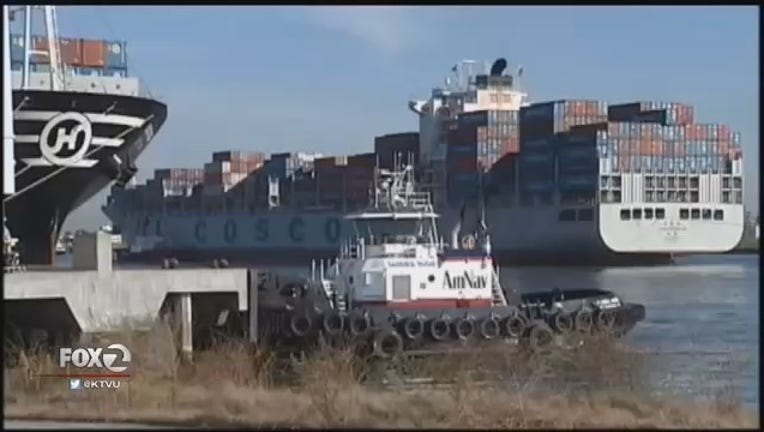West Coast seaports fully reopen as contract talks resume

LOS ANGELES (AP) — West Coast seaports fully reopened Monday after two days during which no ships were unloaded amid a labor dispute between dockworkers and their employers.
The two sides are negotiating a new contract, and bargaining-table tensions have spilled over to the waterfront, where cargo is moving far slower than normal through ports that handle about one-quarter of the nation's international trade — nearly $1 trillion annually.
During the weekend, companies hired workers only to move from dockside yards cargo containers that already had been unloaded from massive ocean-going ships. Employers said those yards are congested to the point of paralysis, and they needed to focus on freeing space. They also said they wouldn't pay full crews they contend have been working slowly as a pressure tactic.
The CEO of the maritime association that represents employers said last week that ports were so close to total gridlock that employers could lock out workers as soon as Monday.
On Monday, a spokesman for the Pacific Maritime Association did not have immediate comment on how much congestion weekend workers were able to clear and what a timeline for a lockout might now be.
The dockworkers' union condemned the weekend hiring cutbacks — and the warning of a lockout. The International Longshore and Warehouse Union disputes both that there is little room for new containers and that its members have been working slowly. The union blames the West Coast congestion crisis on structural problems with the shipping supply chain.
Contract talks were scheduled to resume Monday afternoon in San Francisco after a weekend hiatus. The prior contract expired in July. A federal mediator got involved a month ago. While there was some immediate progress after that development, both sides have not settled issues including wages and how to arbitrate future work-related disputes.
Meanwhile, outside pressure to reach a deal has been mounting from elected officials, retailers whose imported products are stuck on the docks, exporters who say they can't access foreign markets, and others affected by the congestion crisis.

